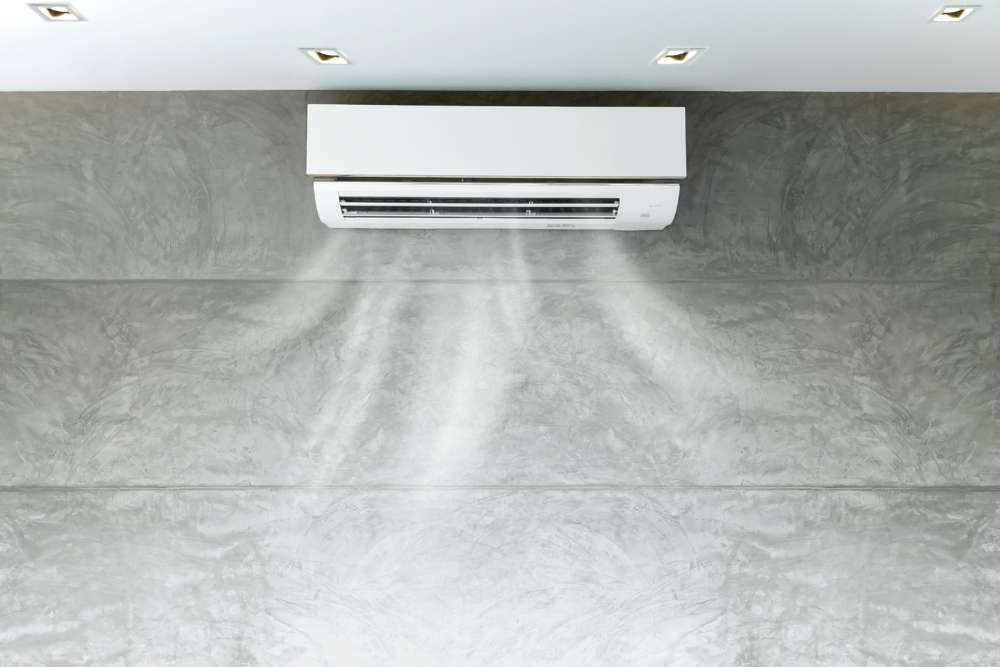Ductless Air Conditioners: Benefits and Options for Sale
Ductless air conditioners, also known as mini-split systems, have gained popularity in recent years due to their efficiency and flexibility. These innovative cooling solutions offer a range of benefits for homeowners and businesses alike, providing targeted climate control without the need for extensive ductwork. In this article, we'll explore the advantages of ductless air conditioners and discuss options available for purchase.

What is a ductless air conditioner and how does it work?
A ductless air conditioner is a heating and cooling system that doesn’t require traditional ductwork to distribute conditioned air throughout a space. It consists of two main components: an outdoor compressor unit and one or more indoor air handling units. These units are connected by refrigerant lines and electrical wiring, allowing for efficient heat transfer between the indoor and outdoor environments.
The indoor unit, typically mounted on a wall or ceiling, contains a fan that circulates air over cooling coils. As warm air passes over these coils, heat is absorbed and transferred to the outdoor unit, where it’s released into the atmosphere. This process effectively cools the indoor space while maintaining optimal energy efficiency.
What are the main benefits of installing a ductless AC system?
Ductless air conditioners offer several advantages over traditional central air conditioning systems:
-
Energy efficiency: Ductless systems avoid energy losses associated with ductwork, resulting in lower utility bills.
-
Zoned cooling: Each indoor unit can be controlled independently, allowing for customized temperature settings in different rooms.
-
Easy installation: Without the need for ductwork, installation is typically faster and less disruptive to your home.
-
Improved air quality: Ductless ACs feature multi-stage filtration systems that can remove allergens and pollutants from the air.
-
Quiet operation: These systems are generally quieter than central air conditioners, providing a more peaceful indoor environment.
How do ductless air conditioners compare to central AC systems?
While both ductless and central air conditioning systems can effectively cool your home, they differ in several key aspects:
-
Installation: Ductless systems are easier and less invasive to install, especially in older homes or buildings without existing ductwork.
-
Energy efficiency: Ductless ACs are typically more energy-efficient due to the absence of duct-related energy losses.
-
Zoning capabilities: Ductless systems offer greater flexibility in temperature control for individual rooms or areas.
-
Initial cost: The upfront cost of a ductless system may be higher, but long-term energy savings can offset this expense.
-
Aesthetics: Ductless indoor units are visible on walls or ceilings, while central AC systems are largely hidden from view.
What factors should you consider when choosing a ductless AC?
When selecting a ductless air conditioner for your home or business, consider the following factors:
-
Cooling capacity: Determine the appropriate BTU (British Thermal Unit) rating based on the size of the space you need to cool.
-
Number of zones: Decide how many indoor units you’ll need to effectively cool different areas of your property.
-
Energy efficiency ratings: Look for units with high SEER (Seasonal Energy Efficiency Ratio) ratings for optimal energy savings.
-
Heating capabilities: Some ductless systems offer both cooling and heating functions, providing year-round comfort.
-
Noise levels: Compare decibel ratings to ensure the system won’t disrupt your daily activities.
What are some unique features of ductless air conditioners in Canada?
In Canada, ductless air conditioners have gained popularity due to their ability to provide both cooling and heating in a single system. This is particularly beneficial given the country’s varied climate. Many ductless ACs available in Canada are designed to operate efficiently in cold temperatures, making them suitable for year-round use.
Additionally, some Canadian provinces offer rebates or incentives for installing energy-efficient ductless systems, which can help offset the initial cost. These programs often require the installation to be performed by a licensed professional to ensure optimal performance and energy savings.
Where can you find ductless AC systems for sale in Canada?
Ductless air conditioners are available for purchase from various retailers and HVAC specialists across Canada. Here’s a comparison of some popular options:
| Provider | Product Range | Key Features | Price Range (CAD) |
|---|---|---|---|
| Home Depot | Daikin, LG, Senville | Wide selection, DIY options | $700 - $3,500+ |
| Lowe’s | Frigidaire, GE, Gree | In-store expertise, installation services | $800 - $3,000+ |
| HVAC Direct | Mitsubishi, Fujitsu, LG | Professional-grade units, bulk pricing | $1,000 - $4,000+ |
| Costco | Lennox, Carrier | Member discounts, extended warranties | $1,200 - $3,500+ |
| Amazon.ca | Various brands | User reviews, fast shipping | $600 - $3,000+ |
Prices, rates, or cost estimates mentioned in this article are based on the latest available information but may change over time. Independent research is advised before making financial decisions.
When shopping for a ductless air conditioner, it’s essential to compare prices, features, and warranty options from multiple providers. Many retailers offer installation services, which can be crucial for ensuring proper setup and optimal performance of your new system.
In conclusion, ductless air conditioners offer an efficient and flexible cooling solution for Canadian homes and businesses. By understanding the benefits, considering key factors, and exploring available options, you can make an informed decision when purchasing a ductless AC system that meets your specific needs and budget.




